Loitering in Badrinath | Sadhus, Cannabis, Free Meal, Free Stay
How I Got Into an Ashram
After coming down from a failed Satopanth Taal trek, I reached Mana and was resting in a temple when a sadhu approached me and asked about my journey. As I spoke, he somehow realized I was Bengali—even though I don’t carry a typical Bengali accent. He mentioned another “Bangali Mahatma” who was with him and said I’d be happy to meet him, so we waited together.
Soon, a friendly-looking sadhu arrived and sat beside me. We instantly began chatting in Bangla. He was warm—almost brotherly. He asked where I was staying and suggested I join him at an ashram. Since the floods, Badrinath was nearly empty, with only a few sadhus around. There was plenty of space, he said, and I could stay as long as I wanted!
What else could I ask for? I decided immediately. I told him I’d come by that evening.
Three more kilometers of walking and a few inquiries brought me to the gates of the ashram.
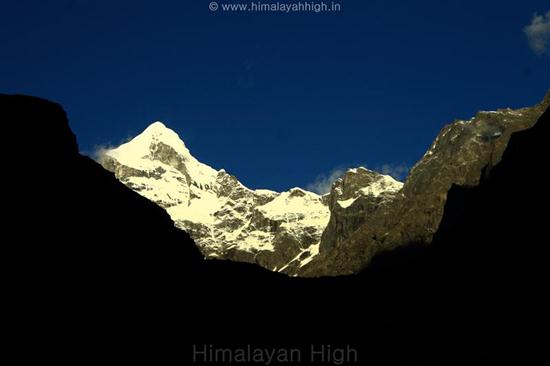
Everyone Is a Baba Here—So Did I Become
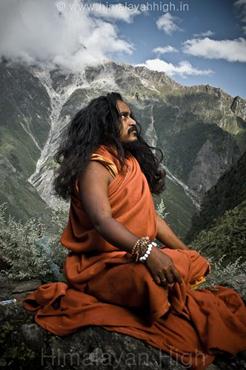
It felt surreal, and I was a bit apprehensive about the rules and loss of freedom. I asked if the Bengali Mahatma stayed there, and upon confirmation, I explained that he’d invited me and asked if there was any room available. To my surprise, they welcomed me and immediately handed me a “roll”—a bundle with a blanket for the floor, another blanket to cover, and a pillow. Perfect!
I was free to choose any room. I entered a dark one, set up my bed, and changed into comparatively dry clothes—all in pitch darkness.
Suddenly, an elderly baba began his evening prayers, lighting a candle and incense sticks. The small room filled with a divine fragrance. Now illuminated, I realized there were two other babas in the room, both elderly and often coughing. After finishing his prayers, one of them turned to me and asked:
“Baba, aap kaha se ho?” (Baba, where are you from?)
That’s when it hit me—everyone here was Baba. So was I, now.
Smoke, Smoke, Smoke—Morning Through Night
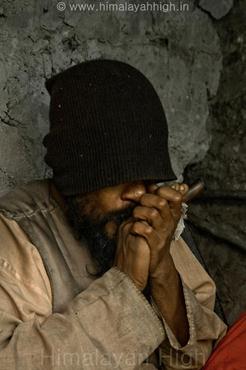
On the very first evening, I’d barely changed into dry clothes and was contemplating how to dry the rest of my wet clothes when a group of babas stormed into my room.
“Gujarati Baba aaya hai! Gujarati Baba kaha hai?”
The elderly man who’d just finished praying responded:
“Boom Shankar! Jai Maharaj!”
The room grew crowded, buzzing with energy. It was the voice of the Bangali Mahatma—he was thrilled to see me there!
“Baba, kuch alag pilao!” (Baba, make me smoke something different!) he exclaimed.
“Arey Mahatma, bilkul bilkul…” (Of course, Mahatma!) came the reply. And from his jhola (bag), he pulled out a dry bundle of brownish weed.
It was swiftly rolled and lit. Soon, the divine fragrance of chillum smoke overpowered even the incense. When it was my turn, the Bangali Mahatma asked me warmly, “Do you smoke?”
I’d smoked during my engineering days but quit after graduation, with only occasional tries among old friends. Yet somehow, in that moment, I couldn’t say no. I said YES.
So there I was… smoking a chillum with sadhus from all over India, in an ashram, in Badrinath. A scene I’d never imagined, planned for, or dreamt of in my entire life!
I stopped wondering and let myself go with the flow.
For the next three days, the air barely changed its scent. Only the place and the weed’s origin varied. We may have smoked weed from every corner of India during those three days!
Mahatma’s Kuthiya and the Himalayan Herbal Tea
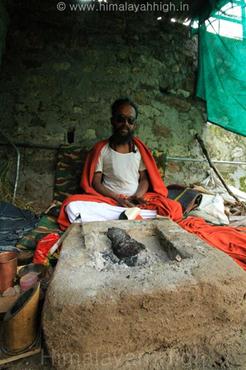
After an intense smoking session and animated conversations about their travels, the Mahatma decided it was time to head to his kuthiya (small dwelling). He invited me along.
It was a short but treacherous trail on slippery mud. The furious roar of the Alakananda river filled the air. His room was a tiny space barely fitting a single bed and a narrow strip of floor, occupied by his stove and cooking gear. He welcomed me inside.
“Everything is mud. Everything will become mud. What’s dirty then?”
I was barefoot, and my feet were caked in mud from the trail. I started looking for water to wash them, but the Mahatma said, “Why look for water? Nothing is dirty. Everything is mud, and it all goes back to mud.” I fell silent and climbed onto his bed as instructed.
The Godly Tea
Shivering in my wet clothes, I watched as the Mahatma noticed my discomfort and began preparing tea. His walls were lined with bundles of dried leaves. He selected several varieties—but no tea leaves—to brew the tea. The aroma was incredible. Once ready, he dropped a generous chunk of butter into a glass and filled it with the herbal brew. One sip, and warmth spread through my entire body. It tasted divine—a flavor I’ve never found again.
The Untold Rules of the Ashram
In just one day, so much had happened. I found myself going with the flow, learning the ashram’s unspoken rules. Staying there wasn’t entirely free. One had to help out—either as directed by the older babas or by volunteering. The ashram ran langars (free kitchens) three times a day: breakfast, lunch, and dinner. You could help serve food or work around the Hanuman temple, making garlands, fetching water, or cleaning. Everyone called each other Baba, and so was I. Nobody would call you for meals—you were expected to know the timings and show up. And while smoking was almost constant in the ashram, regular bathing was also expected—a routine I struggled with.
Tapta Kund, Badrinath Darshan, and a Trek to Fellow Babas’ Gufas
On the second morning, the Mahatma asked if I’d bathed yet. When I said no, he grinned and led me to Tapta Kund—the hot springs. It wasn’t just a bath; it was a celebration!
Separate pools for men and women meant we could bathe freely. With the flood keeping tourists away, we nearly had the pool to ourselves. A joyful smile spread across my face as I dived into the steaming water.

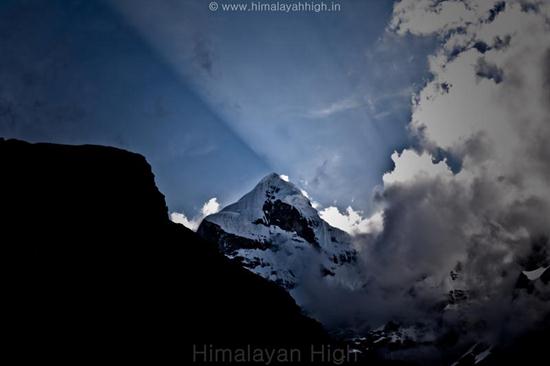
Badrinath Darshan
Fresh from the bath, we went for darshan at the Badrinath temple. I’m not particularly religious, but as a Hindu by birth, I’d followed traditions since childhood. I’d always heard that Badrinath was impossibly crowded during peak season. Yet, because of the floods, there were hardly a dozen people there—mostly sadhus and locals. I had a darshan from incredibly close quarters. My mother would have been so proud!
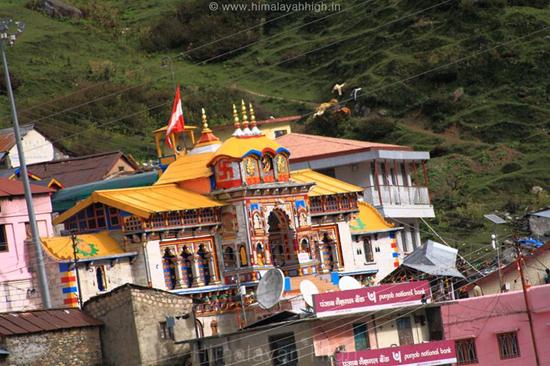
A Trek to Fellow Babas’ Gufas
That afternoon was filled with smoke and lively discussions about their unique lifestyle. Though driven by religious goals, their journeys gave them the freedom to travel across India. Some of their travel plans stretched over 12 years—a concept beyond imagination for most of us!
One baba had come down from his gufa to fetch new varieties of weed and to meet our Bangali Mahatma. After spending the day with him, he invited us to visit his gufa along the trail toward Neelkanth Base. While the babas trekked barefoot, I laced up my shoes and struggled to keep pace—it wasn’t easy!
The winding trail took about an hour, leading us to a tiny hut in serene isolation. The baba’s humble dwelling had a small hawan space. He served us regular tea—nothing fancy this time—and we continued trekking further toward Neelkanth, the grand mountain standing there in majestic silence.
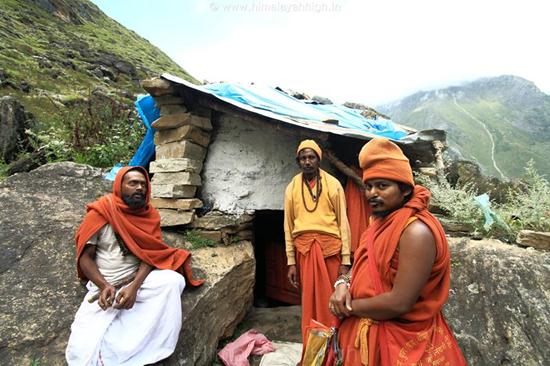
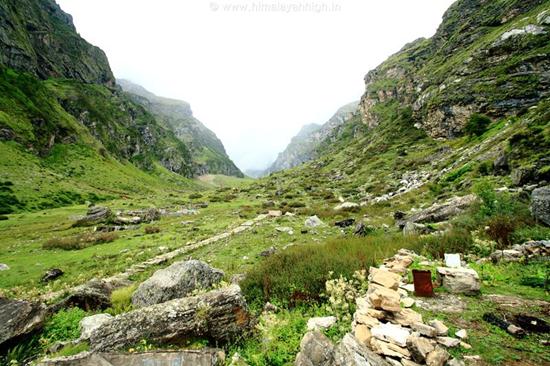
Too Many Things Happening!
Two days passed in a blur. By the third morning, I awoke to another whirlwind day filled with smoke sessions, gathering flowers for Hanumanji’s garlands, tending small patches of farmland, and listening to endless fascinating stories from the babas.
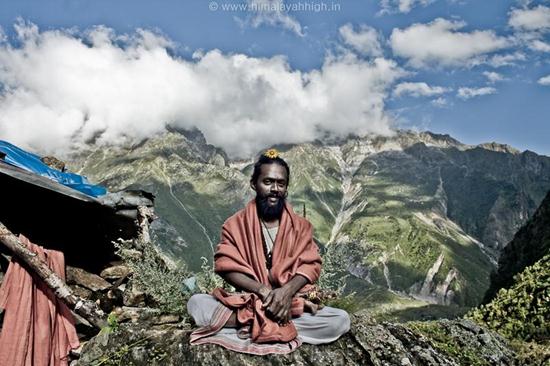
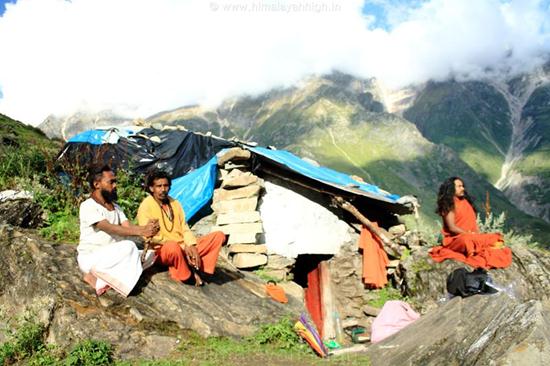
The Traveling Heart Walks Out
After spending three full days in the ashram, I decided it was time to move on. I could have stayed longer, but other places beckoned, pulling me forward.
I left with wonderful memories and hope to meet the same babas again someday—perhaps when I return to finally complete my unfinished Satopanth Taal trek, and for many other adventures yet to come.
I had no fixed plan but had decided to head down to Ukhimath…
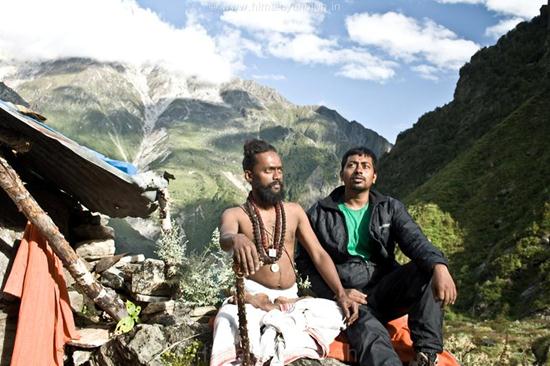
That's How I Got Leh'd